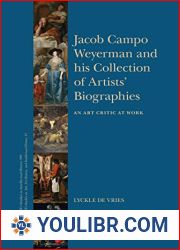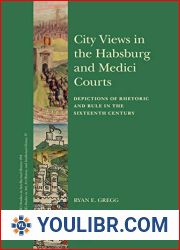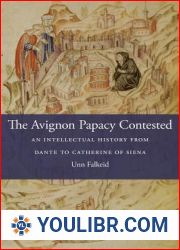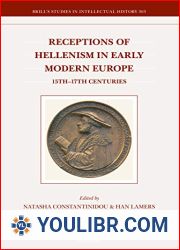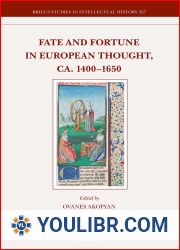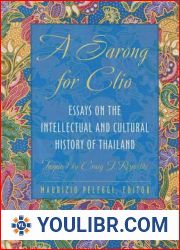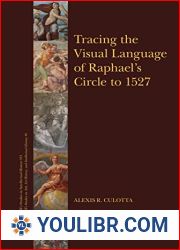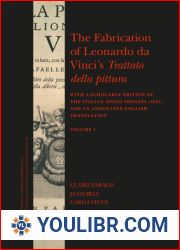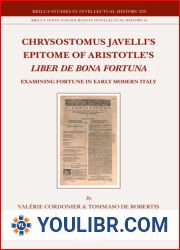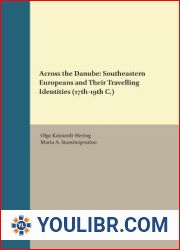
BOOKS - Studies in the Intellectual History of Tokugawa Japan

Studies in the Intellectual History of Tokugawa Japan
Author: Masao Maruyama
Year: January 1, 1952
Format: PDF
File size: PDF 34 MB
Language: English
Year: January 1, 1952
Format: PDF
File size: PDF 34 MB
Language: English
Studies in the Intellectual History of Tokugawa Japan: A Comprehensive Study of Changing Political Thought In this groundbreaking book, Masao Maruyama delves into the intellectual history of Japan's Tokugawa period, providing a comprehensive study of the changing political thought that shaped the country during this time. The book focuses on the philosophical roots of Japanese modernization, exploring the roles of Sorai Confucianism and Norinaga Shintoism in breaking the stagnant confines of Chu Hsi Confucianism, the underlying political philosophy of the Tokugawa feudal state. Through an in-depth analysis of these schools of thought, Maruyama reveals how they created an intellectual climate that allowed for the ideas and practices of modernization to thrive. The Tokugawa period, which spanned from the late 16th century to the late 19th century, was marked by a rigid social hierarchy and a feudal system that limited the power of the emperor and the influence of Western ideas. However, as the world began to change with the advent of modernity, Japan found itself struggling to adapt to these new ideas and technologies.
Studies in the Intellectual History of Tokugawa Japan: A Comprehensive Study of Changing Political Thought В этой новаторской книге Масао Маруяма углубляется в интеллектуальную историю японского периода Токугава, предоставляя всестороннее исследование меняющейся политической мысли, которая сформировала страну в это время. Книга посвящена философским корням японской модернизации, исследуя роль конфуцианства сораи и синтоизма норинага в разрушении застойных границ конфуцианства Чу Хси, лежащей в основе политической философии феодального государства Токугава. Посредством глубокого анализа этих школ мысли Маруяма показывает, как они создали интеллектуальный климат, который позволил процветать идеям и практикам модернизации. Период Токугава, охватывавший период с конца XVI века до конца XIX века, был отмечен жёсткой социальной иерархией и феодальной системой, ограничивавшей власть императора и влияние западных идей. Однако, когда мир начал меняться с приходом современности, Япония с трудом адаптировалась к этим новым идеям и технологиям.
Studies in the Intellectual History of Tokugawa Japan : A Comprehensive Study of Changing Political Thought Dans ce livre novateur, Masao Maruyama explore l'histoire intellectuelle de la période Tokugawa du Japon en fournissant une étude complète de la pensée politique changeante qui a façonné le pays c'est le moment. livre traite des racines philosophiques de la modernisation japonaise, explorant le rôle du confucianisme sorai et du shintoïsme norinaga dans la destruction des frontières stagnantes du confucianisme de Chu Hsi, qui est à la base de la philosophie politique de l'État féodal de Tokugawa. Par une analyse approfondie de ces écoles de pensée, Maruyama montre comment elles ont créé un climat intellectuel qui a permis l'épanouissement des idées et des pratiques de modernisation. La période Tokugawa, qui s'étendait de la fin du XVIe siècle à la fin du XIXe siècle, a été marquée par une hiérarchie sociale rigide et un système féodal qui limitait le pouvoir de l'empereur et l'influence des idées occidentales. Cependant, lorsque le monde a commencé à changer avec l'arrivée de la modernité, le Japon a eu du mal à s'adapter à ces nouvelles idées et technologies.
Estudios en la Historia Intelectual de Tokugawa Japón: Un Estudio Comprensivo del Pensamiento Político Cambiante En este libro pionero, Masao Maruyama profundiza en la historia intelectual del periodo japonés de Tokugawa, proporcionando un estudio exhaustivo del pensamiento político cambiante que formó el país en esta época. libro trata de las raíces filosóficas de la modernización japonesa, explorando el papel del confucianismo sorai y el sintoísmo norinag en la destrucción de las fronteras estancadas del confucianismo de Chu Hsi, que subyace en la filosofía política del estado feudal de Tokugawa. A través de un análisis profundo de estas escuelas de pensamiento, Maruyama muestra cómo crearon un clima intelectual que permitió que las ideas y prácticas de modernización prosperaran. período Tokugawa, que abarcó desde finales del siglo XVI hasta finales del siglo XIX, estuvo marcado por una rígida jerarquía social y un sistema feudal que limitaba el poder del emperador y la influencia de las ideas occidentales. n embargo, cuando el mundo comenzó a cambiar con la llegada de la modernidad, Japón apenas se adaptó a estas nuevas ideas y tecnologías.
Studies in the Intelectual History of Tocugawa Japan: A Comprehensive Study of Changing Political Thought Neste livro inovador, Masao Maruyama aprofundou-se na história intelectual do período japonês de Tocugawa, fornecendo uma pesquisa completa sobre o pensamento político em evolução, que se aprofundou na história intelectual de Tóquio ugawa formou um país nesta altura. O livro trata das raízes filosóficas da modernização japonesa, explorando o papel do confúcio sorai e do xintoísmo norinaga na destruição das fronteiras estagnadas do confúcio Chu Hsi, que está na base da filosofia política do estado feudal de Tocugawa. Através de uma análise profunda dessas escolas, o pensamento de Maruyama mostra como eles criaram um clima intelectual que permitiu a prosperidade de ideias e práticas de modernização. O período de Tokugawa, que se estendeu entre o final do século XVI e o final do século XIX, foi marcado por uma rígida hierarquia social e um sistema feudal que limitava o poder do imperador e a influência das ideias ocidentais. No entanto, quando o mundo começou a mudar com a chegada dos tempos modernos, o Japão teve dificuldade para se adaptar a essas novas ideias e tecnologias.
Studies in the Intellectual History of Tokugawa Japan: A Comprehensive Study of Changing Political Thought In questo libro innovativo, Masao Maruyama approfondisce la storia intellettuale del periodo giapponese di Tokugawa, fornendo una ricerca completa sul pensiero politico che sta cambiando, e che ha portato avanti ha formato un paese in quel periodo. Il libro è dedicato alle radici filosofiche della modernizzazione giapponese, esplorando il ruolo della confucianalità sorai e del sincoismo norinaga nella distruzione dei confini stagnanti del confucianesimo Chu Hsi, che è alla base della filosofia politica dello stato feudale di Tokugawa. Attraverso un'analisi approfondita di queste scuole, i pensieri di Maruyam mostrano come hanno creato un clima intellettuale che ha permesso la prosperità di idee e pratiche di modernizzazione. Il periodo di Tokugawa, compreso tra la fine del XVI secolo e la fine del XIX secolo, fu caratterizzato da una rigida gerarchia sociale e da un sistema feudale che limitava il potere dell'imperatore e l'influenza delle idee occidentali. Tuttavia, quando il mondo ha iniziato a cambiare con la modernità, il Giappone ha faticato ad adattarsi a queste nuove idee e tecnologie.
Studies in the Intellectual History of Tokugawa Japan: A Comprehensive Study of Changing Political Thought In diesem bahnbrechenden Buch taucht Masao Maruyama in die intellektuelle Geschichte der japanischen Tokugawa-Zeit ein und bietet eine umfassende Untersuchung des sich verändernden politischen Denkens, das das Land in dieser Zeit geprägt hat. Das Buch widmet sich den philosophischen Wurzeln der japanischen Modernisierung und untersucht die Rolle des Sorai-Konfuzianismus und des Norinag-Shintoismus bei der Zerstörung der stagnierenden Grenzen des Chu Hsi-Konfuzianismus, der der politischen Philosophie des Feudalstaates Tokugawa zugrunde liegt. Durch eine eingehende Analyse dieser Denkschulen zeigt Maruyama, wie sie ein intellektuelles Klima geschaffen haben, das Modernisierungsideen und -praktiken ermöglicht hat. Die Tokugawa-Periode, die vom Ende des 16. Jahrhunderts bis zum Ende des 19. Jahrhunderts dauerte, war von einer starren sozialen Hierarchie und einem feudalen System geprägt, das die Macht des Kaisers und den Einfluss westlicher Ideen einschränkte. Als sich die Welt jedoch mit dem Aufkommen der Moderne zu verändern begann, hatte Japan Schwierigkeiten, sich an diese neuen Ideen und Technologien anzupassen.
מחקרים בהיסטוריה האינטלקטואלית של טוקוגאווה יפן: מחקר מקיף על שינוי מחשבה פוליטית מסאו מרויאמה מתעמק בהיסטוריה האינטלקטואלית של תקופת טוקוגאווה של יפן בספר פורץ דרך זה, מתן מחקר מקיף של החשיבה הפוליטית המשתנה שעיצבה את המדינה בתקופה זו הספר מתמקד בשורשים הפילוסופיים של המודרניזציה היפנית, חקר את תפקידם של סוראי קונפוציאניזם ונורינאגה שינטואיזם בפריצת הגבולות הקונפוציאניסטיים החזקים של צ 'ו האסי, הפילוסופיה הפוליטית הבסיסית של המדינה הפיאודלית של טוקוגאווה. באמצעות ניתוח מעמיק של אסכולות המחשבה הללו, מראה מרויאמה כיצד הם יצרו אקלים אינטלקטואלי שאיפשר לרעיונות ולמנהגים של מודרניזציה לשגשג. תקופת טוקוגאווה, שכיסתה את התקופה מסוף המאה ה-16 ועד סוף המאה ה-19, הייתה מסומנת על ידי היררכיה חברתית נוקשה ומערכת פיאודלית שהגבילה את כוחו של הקיסר ואת השפעתם של רעיונות מערביים. עם זאת, כאשר העולם החל להשתנות עם הופעת המודרניות, יפן התקשתה להסתגל לרעיונות וטכנולוגיות חדשות אלה.''
دراسات | في التاريخ الفكري لتوكوغاوا اليابان: دراسة شاملة لتغيير الفكر السياسي ماساو ماروياما يتعمق في التاريخ الفكري لفترة توكوغاوا اليابانية في هذا الكتاب الرائد، تقديم دراسة شاملة للفكر السياسي المتغير الذي شكل البلاد خلال هذا الوقت. يركز الكتاب على الجذور الفلسفية للتحديث الياباني، استكشاف دور الكونفوشيوسية لسوراي وشنتوية نوريناغا في كسر الحدود الكونفوشيوسية الراكدة لتشو هسي، الفلسفة السياسية الأساسية لدولة توكوغاوا الإقطاعية. من خلال تحليل متعمق لهذه المدارس الفكرية، يوضح ماروياما كيف خلقت مناخًا فكريًا سمح للأفكار وممارسات التحديث بالازدهار. تميزت فترة توكوغاوا، التي تغطي الفترة من نهاية القرن السادس عشر إلى نهاية القرن التاسع عشر، بالتسلسل الهرمي الاجتماعي الصارم والنظام الإقطاعي الذي حد من قوة الإمبراطور وتأثير الأفكار الغربية. ومع ذلك، عندما بدأ العالم يتغير مع ظهور الحداثة، واجهت اليابان صعوبة في التكيف مع هذه الأفكار والتكنولوجيات الجديدة.
도쿠가와 일본의 지적 역사 연구: 정치적 사고 변화에 대한 포괄적 인 연구 마루야마 마사오는이 획기적인 책에서 일본 도쿠가와 시대의 지적 역사를 탐구합니다. 이 기간 동안 국가를 형성 한 변화하는 정치적 사고에 대한 포괄적 인 연구를 제공하는이 책은 일본 근대화의 철학적 뿌리에 중점을 둡니다. 도쿠가와 봉건 국가의 기본 정치 철학 인 추시의 정체 된 유교 경계를 무너 뜨리는 소라이 유교와 노리나가 신토주의의 역할을 탐구한다. 마루야마는 이러한 사고 학교에 대한 심층적 인 분석을 통해 현대화의 아이디어와 관행이 번성 할 수있는 지적 기후를 어떻게 만들 었는지 보여줍니다. 16 세기 말부터 19 세기 말까지의 도쿠가와 시대는 황제의 힘과 서구 사상의 영향을 제한하는 엄격한 사회 계층과 봉건 제도로 표시되었습니다. 그러나 근대성의 출현으로 세계가 변화하기 시작하면서 일본은 이러한 새로운 아이디어와 기술에 적응하는 데 어려움을 겪었습니다.










